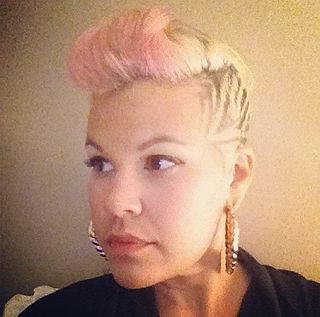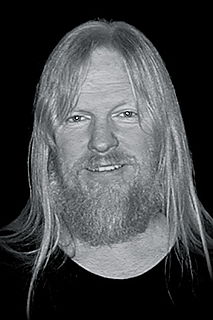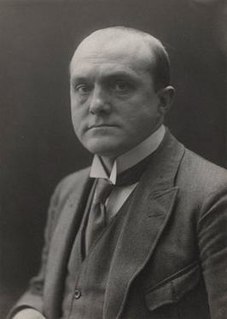A Quote by Virginia Heffernan
I wondered if all of us churchgoers were just exhausted by grief. For the dying priest and us, I thought, "God" always refused to become glorious, instead stubbornly remaining plain, a headache, a sorrowful knot of language.
Related Quotes
I once heard somebody say that God had closed a door on an opportunity they had hoped for. But I've always wondered if when we want to do something that we know is right and good, God places that desire deep in our hearts because He wants it for us and it honors Him. Maybe there are times when we think a door has been closed and, instead of misinterpreting the circumstances, God wants us to kick it down. Or perhaps just sit outside of it long enough until somebody tells us we can come in.
We are spirits. That bodies should be lent us while they afford us pleasure, assist us in acquiring knowledge or in doing good to our fellow-creatures, is a kind of benevolent act of God. When they become unfit for these purposes and afford us pain instead of pleasure, instead of an aid become an encumbrance and answer none of these intentions for which they were given, it is equally kind and benevolent that a way is provided by which we get rid of them. Death is that way.
God is alive. He has created every one of us, and he knows us all. He is so great that He has time for the little things in our lives: “Every hair of your head is numbered”. God is alive, and makes sense to become a priest: the world needs priests, pastors, today, tomorrow and always, until the end of time.
I watched the gorilla's eyes again, wise and knowing eyes, and wondered about this business of trying to teach apes language. Our language. Why? There are many members of our own species who live in and with the forest and know it and understand it. We don't listen to them. What is there to suggest we would listen to anything an ape could tell us? Or that it would be able to tell us of its life in a language that hasn't been born of that life? I thought, maybe it is not that they have yet to gain a language, it is that we have lost one.
We will enjoy ourselves with the forms that are given us: a human face, a hand, the breast of a woman or the body of a man, a glad or sorrowful expression, the infinite seas, the wild rocks, the melancholy language of the black trees in the snow, the wild strength of spring flowers and the heavy lethargy of a hot summer day when Pan, our old friend, sleeps and the ghosts of midday whisper. This alone is enough to make us forget the grief of the world, or to give it form.
The charged life, then, usually calls to us after we have done what we were supposed to do, become who we thought we were supposed to be, lived as we thought we were supposed to live. Then the safety and comfort and compromise get to us, and a stirring of restlessness and revolution sends us off in search of greater adventures and meaning. From THE CHARGE
God's love has a width, length, height, and depth, but we will never reach the end of it. Our capacity to experience God's love will be exhausted long before God's capacity to give it is strained. The picture of having Christ dwell inside us by faith presents us with compelling and comforting possibilities. What Christ does in us and through us will always be 'exceedingly abundantly above all we ask or think.'






































